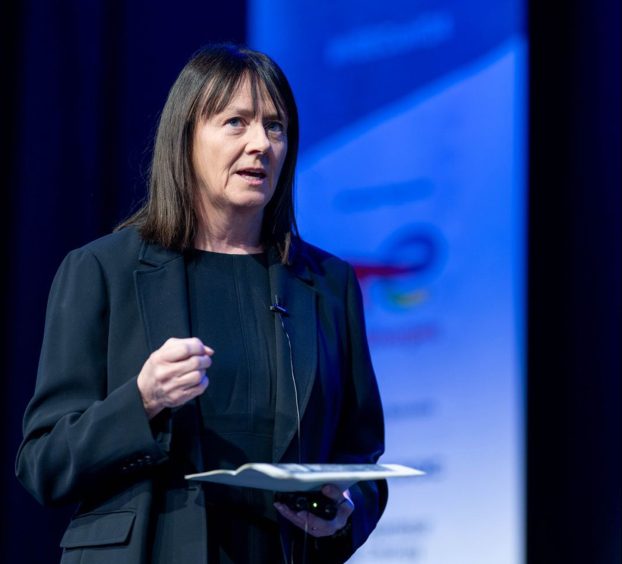
The offshore safety watchdog says it has seen “extremely worrying” cases of North Sea operators going “backwards” on critical maintenance, despite HSE progress elsewhere.
Safety-critical maintenance backlog has become a major issue for the industry, with some individual platforms having tens of thousands of outstanding hours post-Covid, which the Health and Safety Executive has warned risks major accidents.
Samantha Peace, energy division director at the HSE, discussed the problem at the top of her address to Offshore Energy UK’s (OEUK) HSE Conference in Aberdeen on Thursday.
Some “really positive” steps have been taken, including OEUK’s maintenance backlog strategy, however Ms Peace said numerous issues remain outstanding.
“We have seen some improvements in the sharing of knowledge and sharing of lessons learned and we’ve seen some genuine improvement in the performance of some organizations, but not all of them.
“Some have gone backwards, which is extremely worrying, but we have seen some improvements.”
Ms Peace said the maintenance management failure across the UK oil and gas sector “can be a very strong indicator of key failures in the safety management system”, adding there has been “inconsistent rigour” in addressing the backlog.
“There is some really hard work going on, but there’s also some inconsistency there and we’ve seen an absence of some of the expected, very clear and very unambiguous methodologies to actually manage risk, especially if thinking of some critical work, which might be deferred, and making sure that there’s something equally effective in place or simply not deferring and getting on with it.”
Maintenance backlog is major challenge for North Sea HSE
HSE has also seen an increase in non-safety critical backlog, adding “we need to think really carefully about that – cumulative risk, latent hazards – we need to think very carefully about what that might mean”.
As recently as November, HSE notices have found huge backlogs across UK installations, including Apache’s Forties Alpha where nearly 26,000 hours of safety-critical work was left outstanding.
Others revealed through freedom of information documents last summer included EnQuest’s Magnus and Repsol’s Montrose assets.
Delayed maintenance has become a major issue since Covid, when the pandemic forced a reduction in offshore manning levels to address the work.
OEUK said last year the issue, while still pertinent, had stopped its growth curve and much of the work is being moved to “deferred” meaning it has been risk assessed and is being managed by specialists.
Ms Peace said the regulator will “continue to hone in on risk and take enforcement action where we think that’s really necessary in order to get to the right place”.
‘You cannot contract out the legal obligations’
HSE also highlighted cases of “confusion” from some operators on their legal HSE obligations – warning that these cannot be passed off to contractors.
Ms Peace highlighted that change – be that new technologies, leadership decisions, or moving to cessation of production – “can have a profound impact” on continued safe operations and the risk to life and the environment.
She said: “One of the things that we have found most recently is some confusion, sometimes between contractual obligations and health and health and safety legal obligations.
“Just a reminder, and I’m sure most of you in the room know it, you cannot contract out the legal obligations.
“So throughout the processes for the connected activities for the contractors, those health and safety duties remain firmly with the operators. They cannot be contracted away. So it’s important that everybody knows that in this process.”
Earlier in the session, OEUK chief executive David Whitehouse said he was positive about the opportunities for the sector ahead, but it needs to showcase the “gold standard” for HSE.
“I’m optimistic about the opportunities that we have here in Scotland and in the wider UK. I’m optimistic about the opportunities for us here in this room today.
“But to realise those opportunities, the UK offshore industry must set the gold standard in HSE performance.
“Delivering no harm to people, delivering environmentally sustainable operations, that is our goal. We must continue to ensure that the learnings of our 50 plus years of experience are transformed, transferred across the developing energy landscape.”

